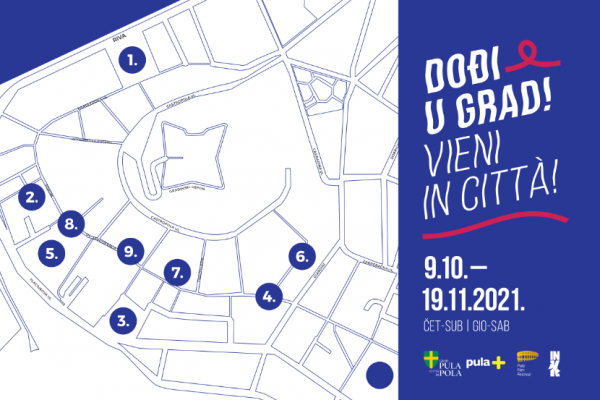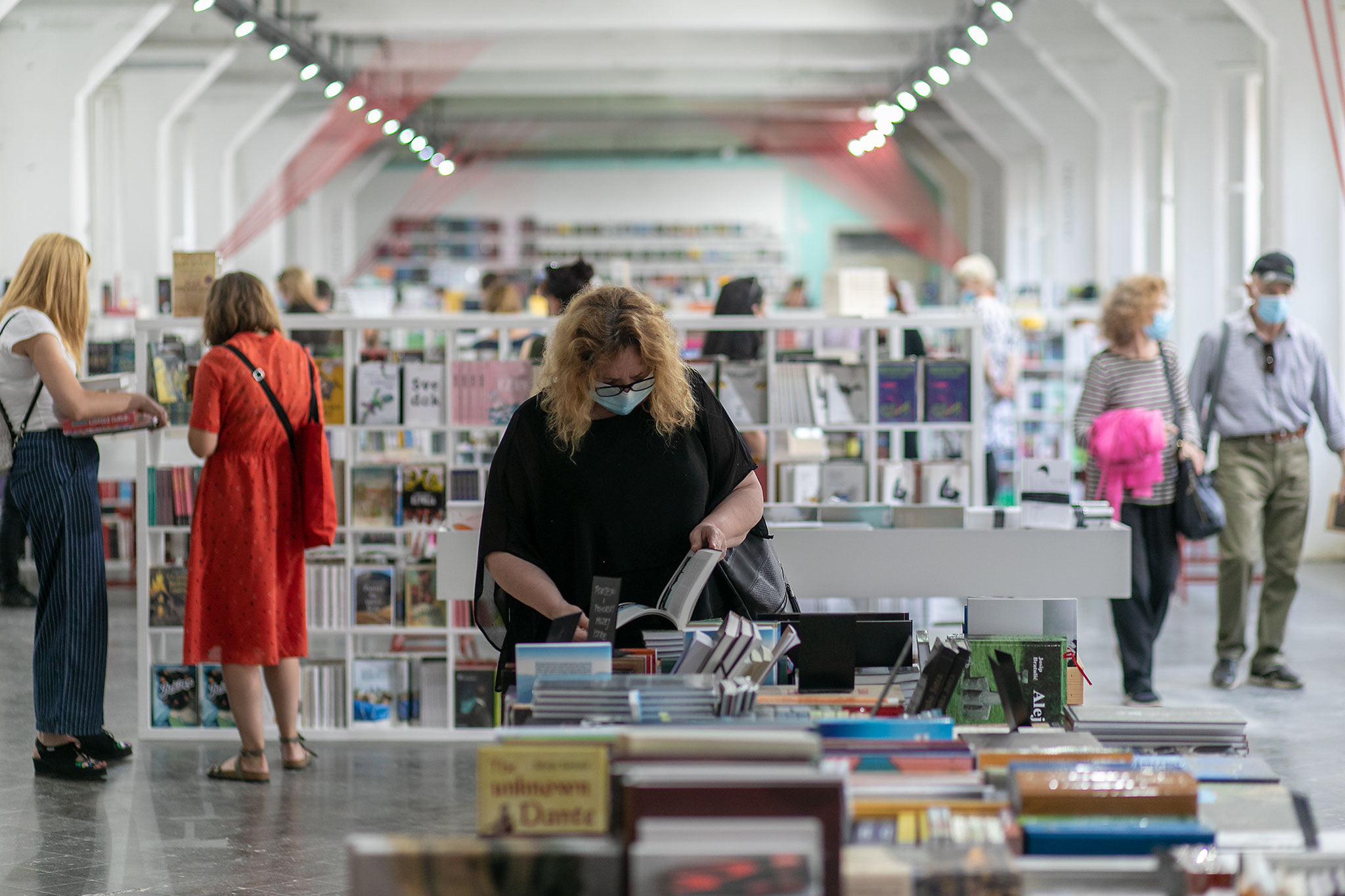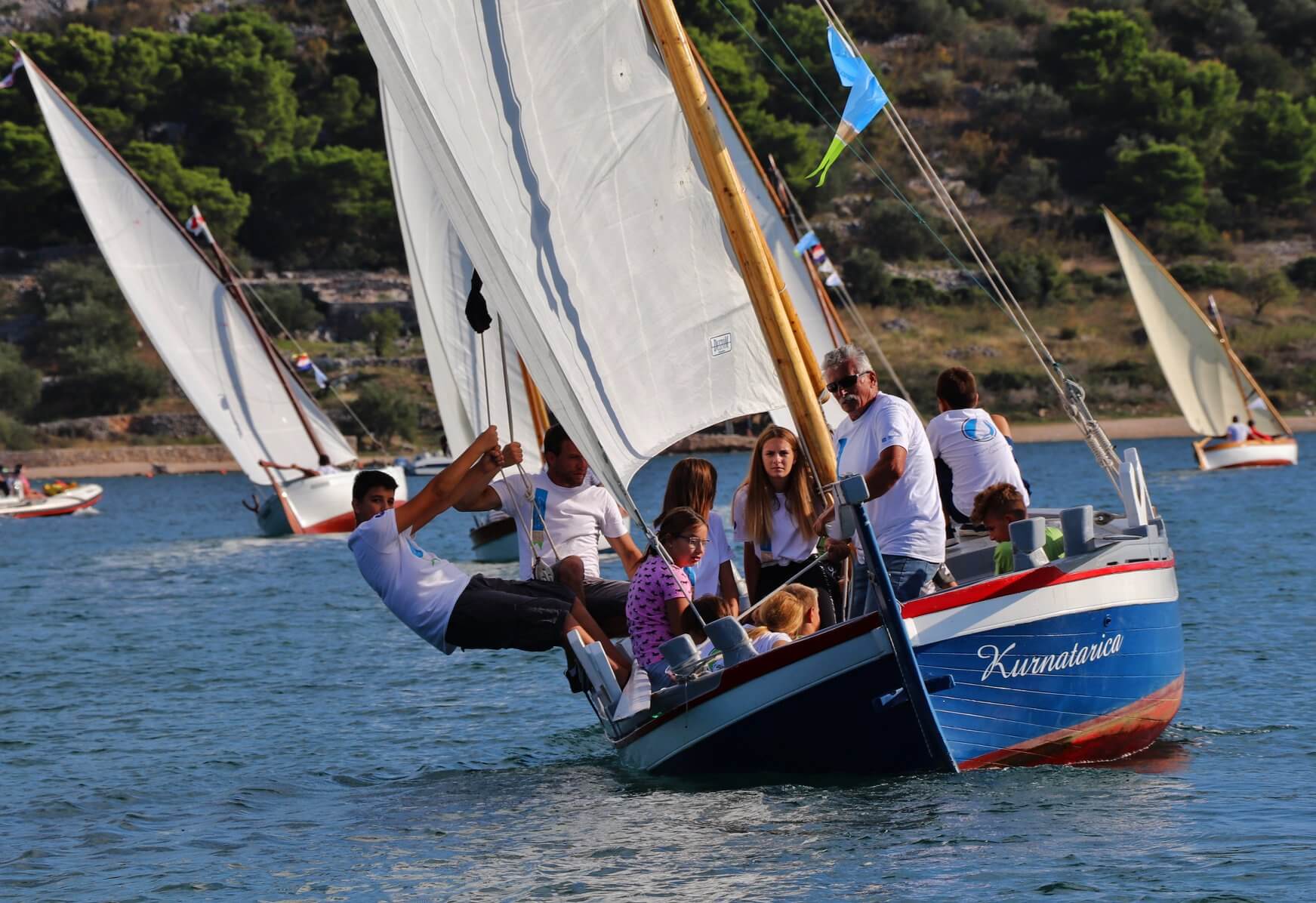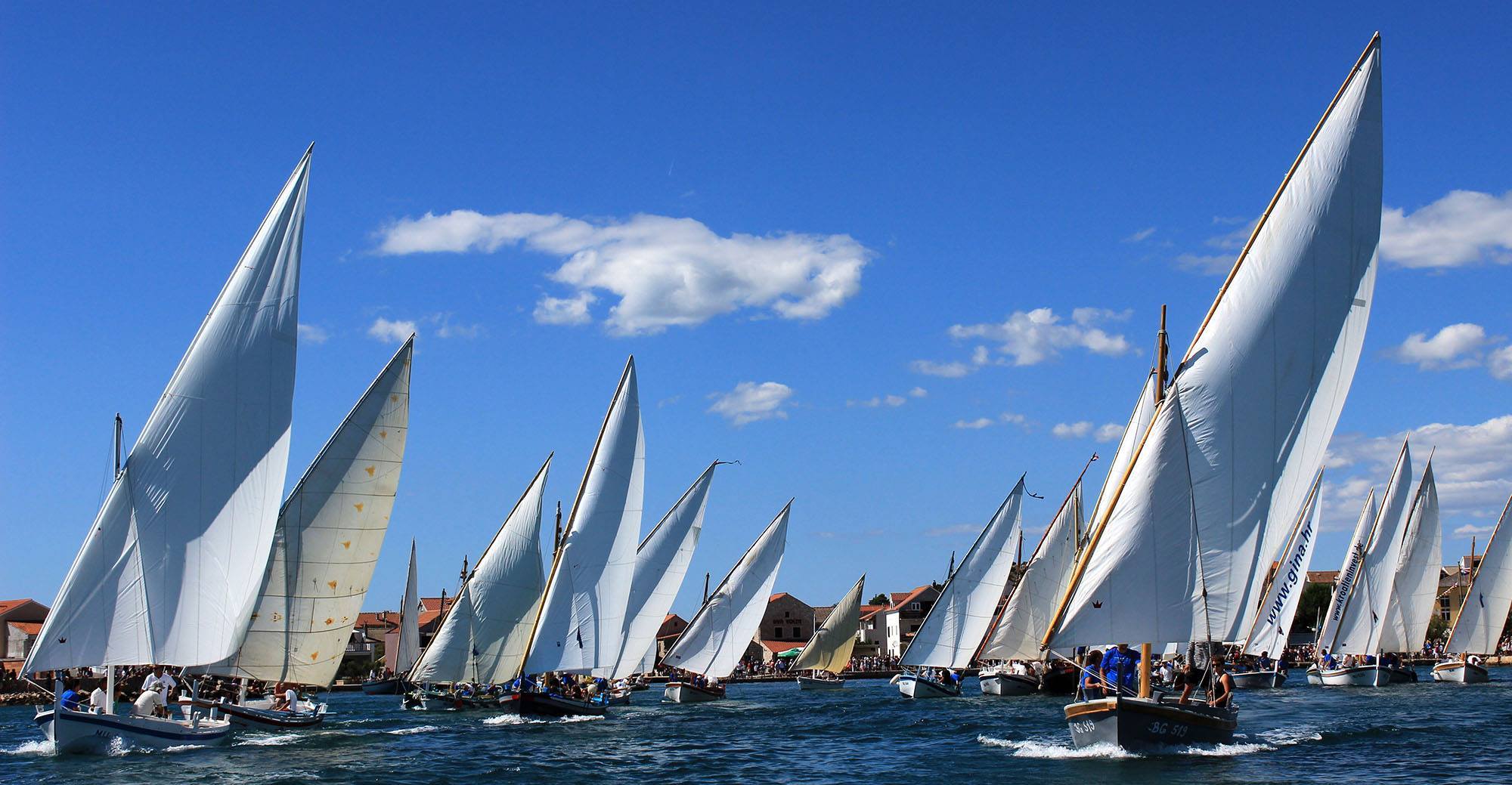Croatia Reports 4,392 New COVID-19 Cases, 26 Deaths
ZAGREB, 29 Oct 2021 - In the last 24 hours, Croatia has registered 4,392 new coronavirus cases and 26 patients have died, the national coronavirus crisis management team said on Friday.
There are currently 23,751 active cases, including 1,311 hospitalized patients, of whom 171 are on ventilators.
Since the first registered case of the infection on 25 February 2020, a total of 462,482 people have become infected and of them, 9,168 have died.
A total of 429,563 people have recovered, including 2,997 in the last 24 hours.
Currently, 35,229 people are self-isolating.
So far a total of 3,085,825 people have been tested, including 12,207 in the last 24 hours.
A total of 3,599,586 vaccine doses have been administered and 46.92% of the total population has been vaccinated, including 56.21% of the adult population.
A total of 1,903,995 people have received at least one shot, and of them 1,791,056 have been fully vaccinated, which accounts for 52.98% of the adult population.
For all you need to know about coronavirus specific to Croatia, make sure to bookmark our dedicated COVID-19 section and select your preferred language.
2021 Croatian Olive Harvest in Full Swing, Oil Prices Could Rise Up to 50%
October 29, 2021 - The 2021 Croatian olive harvest is in full swing, though oil prices this year could rise by 50% since fewer olives were harvested this season.
This year's olive harvest did not yield the best results, so olive oil prices could rise up to 50 percent, Slobodna Dalmacija reports on Friday.
The olive harvest in some olive groves is still ongoing, while some traditionally wait for All Saints' Day. In other groves, there is nothing to pick. A cold front after Easter thinned the fruits in the spring when some olive groves were covered with snow. In Dalmatia, 50 percent fewer olives are harvested this season than last year. Since Istrian olive groves have not fared any better, olive growers are announcing higher oil prices - up to 50 percent in Istria.
"The yields and quality of the oil are better than last year, only this year there will be less. This is because when the flower was supposed to turn into fruit, there was a storm and low temperatures, and after that, there was no water, and these are essential components for olives," explains Denis Benčić from Fažana.
Last year's average price of extra virgin olive oil in Istria was around 100 kuna, and now prices of up to 150 kuna are expected.
"It will be better," says Rade Bobanović of Polače, also president of the 'Maslina i Vino' agricultural cooperative.
"As it is, so it is. There is no joy in the olive groves, but we will not grieve either," adds Bobanović. Climate change is taking its toll; the only thing is that workers are now happier because their pay is higher and they harvest less, he jokes, pointing out that last year he paid pickers earned 2.20 kn per kilogram of olives, and now he pays about 4 kuna.
"If they were paid per kilogram, they would not get even 100 kuna per day," he added, noting that the yield per tree is 30 percent lower than last year, which was also one of the worst, and not even 30 percent compared to the average olive potential. Depending on the micro-location, for example, some places bore fruit above average, some not at all. On the Biograd coast, the branches shoot from the genus, and in the Benkovac area, which is often significant in terms of yield, it is decimated.
"Yields, however, are better everywhere than last year, which means that the oil will be of exceptional quality. But anyway, it is calculated that we are lucky if we have an ideal harvest every fourth or at least every sixth year," said Bobanović.
His olive groves are also organic, even more demanding and expensive to maintain. However, in Croatia, organic extra virgin olive oil is not yet perceived as better quality than that obtained in commercial or integrated production, so the price of all these Dalmatian oils is the same.
For more, make sure to check out our dedicated lifestyle section.
50 Zagreb Airport Winter Flights in 2021/2022 Schedule, Including 45 International
October 29, 2021 - There will be 50 Zagreb Airport winter flights in the 2021/2022 schedule, including 45 international flights!
Index.hr reports that Zagreb International Airport (MZLZ) will be connected to 50 destinations, five in domestic and 45 in international traffic, in the 2021/2022 winter flight schedule, which starts this weekend, Zagreb Airport announced on Friday.
Croatia Airlines announced that in the 2021/2022 winter flight schedule, it connects Zagreb with four destinations in domestic traffic: Split, Dubrovnik, Pula, and Zadar and with 13 international destinations, namely: Amsterdam, Vienna, Brussels, Dublin, Frankfurt, Copenhagen, London, Munich, Paris, Rome, Sarajevo, Skopje, and Zurich.
From December 16, Eurowings plans to start flying on the Zagreb-Prague route.
Other airlines that operate regularly in Zagreb this winter are Air France to Paris, Austrian Airlines to Vienna, Aeroflot, Nordwind, IKAR, and Azur Air to Moscow, Air Serbia to Belgrade, and British Airways to London.
KLM covers Amsterdam, Lufthansa travels to Frankfurt, LOT to Warsaw, Turkish Airlines to Istanbul, Trade Air to Osijek, Qatar Airways to Doha, and Windrose Airlines to Kyiv.
A total of 19 airlines will connect Zagreb with the five destinations above in domestic traffic and international traffic with 45 destinations in 28 countries.
"We believe that such a good connection with Europe, the Middle East, and indirectly with other destinations around the world, will contribute to a significant increase in the number of passengers and further confirm Zagreb as a true city break destination," Zagreb Airport said in a statement.
After several months of decline and stagnation of traffic caused by the Covid-19 pandemic, Franjo Tuđman Airport gradually recovered through a significant increase in the number of passengers and number of destinations, opening new routes, and weekly growth in the number of flights on existing routes in the 2021 summer flight schedule, compared to the previous year.
In the last part of the summer flight schedule, in early September, Ryanair launched nine new routes as part of the announced expansion and base of the second aircraft in Zagreb, and for the first half of December 2021 announced nine new routes - Dublin, Manchester, Eindhoven, Basel, Malaga, Paphos, Malta, Naples, and Thessaloniki.
At the end of September this year, Flydubai re-launched the route on the route Dubai - Zagreb twice a week, with the announcement that in the winter flight schedule, from December 2021, it will fly four times a week.
For more on travel in Croatia, follow TCN's dedicated page.
Croatian Employers Would Implement Covid Certificate Introduction But Can't
October the 29th, 2021 - Croatian employers would gladly introduce covid certification presentation as a mandatory move but cannot under current Croatian law. As a result, they're seeking two important things from the state.
As Poslovni Dnevnik/Marija Crnjak writes, many Croatian employers claim they're overwhelmed and irritated waiting around for the state to finally define the rules around covid certificates, which they would like to introduce them at workplaces and thus join the health and social care system which already have the same rule, but Croatian employers cannot do that because they have no legal basis to introduce it.
The Croatian Employers' Association (HUP) has therefore asked the relevant ministries to issue instructions to employers, which would answer numerous inquiries and concerns about covid certificates owned by their workers, and provide some clear guidelines on how to organise further business given the negative epidemiological situation and the number of workers who are unwell and in self-isolation. They are also asking the state to cover the costs of testing for the novel virus.
Despite the recommendations of the Croatian Institute of Public Health (CNIPH), Croatian employers currently have no legal basis to ask their employees to present a covid certificate, nor to remove them from the workplace if he doesn't produce one,'' they explained from HUP.
Namely, Resolution 2361 (2021) is in force across EU member states, which stipulates that people must be informed that vaccination against the novel coronavirus isn't mandatory, and that there's no political or any other pressure or discrimination to be placed on those who don't want to receive the vaccine. In addition, as the vaccine against coronavirus is not on the list of mandatory vaccines for the Republic of Croatia, there are no obligations or sanctions for refusing vaccination.
Croatian employers are obliged, according to the recommendations of the CNIPH, to finance all the testing of their workers, if necessary. The state pays this only to the health and social care sectors, which HUP considers to be discrimination. HUP therefore sent a request to the competent institutions asking for coronavirus tests be provided to all Croatian employers in an equal way.
"We believe that it's inconceivable and unfair to all other companies to make some sort of difference based on the protection of the health of employees by sector, and by belonging to the public or private sector. All of the above leads to legal uncertainty, and consequently the inability to organise business in a healthy working atmosphere. This situation requires urgent action by state institutions in the form of issuing clear guidelines to employers that would ensure the protection of their workers and the legal operations of Croatian employers during the pandemic,'' they concluded from HUP.
At the time of writing this article, they hadn't yet received answers from the authorities.
For all you need to know about coronavirus specific to Croatia, bookmark our dedicated section and select your preferred language.
Croatian Charter.hr Platform Advocates Digitalisation, Optimisation
October the 29th, 2021 - The Croatian Charter.hr (čarter.hr) platform has been in use since the end of September, and the blossoming Croatian nautical tourism sector has a brand new place at its disposal when it comes to securing all relevant information for business operations in future.
As Poslovni Dnevnik/Marija Crnjak writes, following one year of preparation, the Croatian charter.hr portal has officially been launched by Selma Cmelik, a tourist communication specialist with many years of experience working in charter and the owner of the digital marketing agency Zona Plus. Her idea was to gather all the information, tools, guidelines and various resources necessary for more successful business of nautical charter companies in this country, but also to encourage digitalisation in the sector.
“As someone who worked in the charter industry and is now in digital marketing, I felt the need to create a website that would have all that important information for everyday charter business, but which also contains ideas, tools and resources in the form of statistical reports and trends within this industry.
That hasn't been the case here on the Croatian market so far. As a former charter employee, I know how challenging it can be to get hold of all of the relevant information, especially when it comes to tax and legislative guidance. The development of digitalisation has also provided more and more opportunities, but there was still almost nothing dedicated to the charter industry.
We always had to compare ourselves with the hotel sector, we had to depend on the choice of individual service providers and apart from specialised fairs there was no place to find a good choice of solutions. Therefore, I expect that the charter sector will have multiple benefits from this project,'' explained Cmelnik.
The Croatian charter.hr platform is primarily intended for professionals in nautical charter, directors, managers, operatives in charter bases and reservation departments. It also connects all other services naturally based on this industry, and so it represents an opportunity to connect companies that offer their products and services to charter companies.
“Basically, the Croatian charter.hr platform is a place that advocates the digitalisation and optimisation of nautical charter. We plan to publish articles on various business topics, e-books talking about trends from within the industry, and about digital tools as necessary things for the automation and optimisation of business processes. We'll do our best to conduct some research in order to assess the needs of the industry well and address them correctly,'' announced the entrepreneur.
The plan is for the Croatian charter.hr platform to eventually become a membership platform where members will have additional benefits such as legal, tax and accounting advice and services at their disposal, but more content needs to be added to reach that goal. Currently, the web space for services is free until the end of the year, but the plan is to start with toll packages from January 2022 in order to make the portal sustainable.
“At the moment, all companies that have something to offer to charters and want to present their products or services can contact us and we'll set up a page for them for free. We've agreed cooperation with experts in insurance, finance, digital marketing and sales. They create content that is interesting and needed by users. My goal is to make the content on the web really relevant and useful,'' concluded Cmelnik.
For more, make sure to check out Made in Croatia.
Updated Schedule for Zagreb Coronavirus Vaccine Rollout Published
October the 29th, 2021 - The Zagreb coronavirus vaccine rollout is ongoing and until now there have been several locations at which people can turn up and receive their vaccine(s) in the city. Here is the upcoming schedule for the Croatian capital.
As Poslovni Dnevnik writes, in addition to a change of location for the Zagreb coronavirus vaccine rollout, a clear mass vaccination schedule for the next period has also been published. In accordance with the instructions of the Croatian Institute of Public Health, the Zagreb coronavirus vaccine rollout is set to take place as follows:
The third dose is an additional dose of the coronavirus vaccine for people who may not have developed a complete or satisfactory immune response to their first and second doses. It can be taken eight weeks after a person has their second dose. According to the recommendation of the Croatian Institute of Public Health, these are intended for people with moderate to severe immunosuppression.
The booster dose is an additional dose that is given six months after the second dose to extend the duration of protection against the novel virus.
Zagreb coronavirus vaccine rollout dates according to the public invitation at the Zagreb Fair vaccination point will take place according to the following schedule: Mondays, Wednesdays and Fridays from 08:00 to 12:00 and Tuesdays and Thursdays from 14:30 to 19:00.
On Tuesdays, Thursdays and Fridays, the first and second doses of vaccination with all available types of vaccines will be continued, and on Mondays and Wednesdays the third dose will be administered to immunocompromised persons.
Vaccination dates according to the public invitation at the vaccination point Zagreb Fair will run according to the following schedule:
November the 2nd (Tuesday), from 14:00 to 19:00, with the following vaccines: Comirnaty (Pfizer BioNTech), Janssen (Johnson & Johnson) and Spikevax (Moderna).
November the 3rd (Wednesday), from 08:00 to 12:00, the administration of the third dose of the vaccine for immunocompromised persons will take place with the following vaccines: Comirnaty (Pfizer BioNTech) and Spikevax (Moderna).
November the 4th (Thursday), from 14:00 to 19:00, with the vaccines Comirnaty (Pfizer BioNTech), Janssen (Johnson & Johnson) and Spikevax (Moderna) in the form of a public call for people to come and get their first and second doses.
November the 5th (Friday), from 18:00 to 12:00 with the Comirnaty (Pfizer BioNTech), Janssen (Johnson & Johnson) and Spikevax (Moderna) vaccines, in the form of another public call for people to come and get their first and second doses.
For all you need to know about coronavirus specific to Croatia, make sure to bookmark our dedicated section and choose your preferred language.
McKinsey: 140,000 Croatian Workers Will Need to Change Occupations
October the 29th, 2021 - A huge amount of Croatian workers will need to consider changing their occupations as digitalisation and automation continues to leave the need for the human touch in the past, according to a recent analysis.
As Poslovni Dnevnik writes, approximately 340,000 jobs will disappear due to automation and trends fueled by the COVID-19 pandemic, but rest assured, these will be replaced by almost the same number of new jobs in new occupations and growing industries and due to a general increase in productivity. While net labour demand will remain virtually unchanged, there will be significant changes in the structure of occupations on offer. Therefore, by the end of the decade, almost 140,000 Croatian workers will need to change their occupations in order to remain employed.
This is one of the conclusions of the analysis published by McKinsey & Company Adriatic in cooperation with McKinsey Global Institute entitled The Future of Work in Croatia - Transformation of the Croatian Workforce in the Age of Automation and Digitalisation, which examines the impact of automation, artificial intelligence and digital technologies on various sectors, occupations and jobs, and the combined impact of all this on the combination of skills that the Croatian workforce will need to have by 2030.
Realising the full economic potential of automation and digitalisation, but also maintaining the existing level of employment will require the cooperation of all stakeholders to find ways to enable Croatian workers to transform and acquire the skills that will be required in the future.
"This isn't just going to happen by itself - all private organisations, public institutions and educational institutions will have to work together during the transition period to realise this potential," said Tomislav Brezinscak, CEO of McKinsey & Company Adriatic.
By 2030, six percent of the total number of working hours in Croatia will move from jobs that require physical skills to solve work tasks to jobs that require cognitive, social, emotional and technological skills. Specific skills, such as those needed to manage devices and equipment and to easily enter and process data, are likely to experience the largest drop in demand in the share of employees by 2030. This is to be expected, as activities that require physical strength and skill as well as data collection and processing skills are something that can be very easily automated now.
The analyses described in this report take into account the composition of the workforce throughout the country, combined with the expected rate of the adoption of automation, based on available technologies and the economic feasibility of their implementation. When looking at the potential speed of automation from the perspective of trends fueled by the coronavirus pandemic, Croatia will achieve an automation adoption rate of around 22 percent by 2030.
In other words, the activities that currently account for about 22 percent of the total number of working hours of employees in Croatia will be automated by the end of the decade. The adoption of automation will vary from sector to sector - manufacturing, wholesale, business functions that serve to support the administration, and public administration - will be the areas with the highest rate of automation adoption.
Croatia needs to improve its productivity in order to achieve sustainable economic growth and income growth in all segments of the population. This is especially important because the population of Croatia is only getting older. Automation is also an opportunity to realise Croatian national interests. Companies, if supported by the appropriate policies and investment in skills development, can develop new services and products, increase their productivity and create new and better paid jobs. By embracing the changes that will take place in the world of work over the current decade, Croatia can avoid structural unemployment and create new national wealth in a way that promotes social inclusion.
Accelerated digitisation may be the most important new driver of growth, and Croatia's digital economy, which encompasses all digital activities in all economic sectors, now accounts for approximately five percent of GDP, equivalent to 2.4 billion euros. By 2025, the digital economy in Croatia can reach 11 percent of GDP, which means that it will contribute to the value of the overall economy with 8.3 billion euros.
Although automation and digitalisation provide an opportunity to create a more productive and competitive Croatian workforce, they also bring several challenges - especially in terms of losing existing jobs and developing future skills. Like stakeholders in other EU countries, all stakeholders in Croatia must balance the pace of automation and the acquisition of new skills if they want the country to benefit from automation and the introduction of new technologies.
If automation and digitisation happen too quickly, it may happen that the new jobs that will be created will remain unfilled by Croatian workers, and that, potentially, could lead to worsening income inequality. On the other hand, if automation and digitalisation happen too slowly, it could harm Croatia's competitiveness and prevent economic growth.
For more, check out our business section.
5 Things To Do in Istria in November
Istria is alive and vibrant all year round, and there's no shortage of events outside of the tourist season. We bring you a few suggestions on what to see and do if you're planning to visit Istria in November
1. Warm up with a walk - and some wine - in Novigrad
Technically, it’s still October, but the forecast calls for a sunny weekend in Istria, and so... A nice long walk with gorgeous vistas, coupled with a few nibbles and glasses of wine - sounds like a great way to usher in the new month, right? The popular event Wine & Walk by the Sea will see its 4th instalment this Saturday in Novigrad.
The scenic 10km route will first take you through vineyards and olive groves, and then along the coast, providing a splendid view of the Novigrad city centre. Winemakers and restaurateurs from the area will be showcasing their specialties at six tasting stops along the way, plus a surprise stop halfway through.

© Romulic & Stojcic
Gourmet delicacies will be presented by local caterers Sergio, Kod Marice, La Taverna, Half 8 and Konoba Nino, with dessert provided by Ošo bakery. Each stop has a wine pairing, courtesy of winemakers Moreno Ivančić, Stancija Fava, Leonardo Palčić, Ghira, Vino P&P – Pervino, and Vina Demark.
The walk begins in the morning at Kastanija beach where participants can register and collect their tasting glass together with a map of the trail. Departures are scheduled every 20 minutes.
When: Saturday, October 30th. Registration 8.30 AM - 12PM
Where: Kastanija beach (start and finish), 3km north of Novigrad
Note: attendance is only possible with a Covid certificate or a negative rapid antigen test result no older than 48 hours. Tickets, pricing and the full schedule available at Colours of Istria.
2. Go out on the town in Pula

Image source: Dođi u grad - Vieni in città
Well... It's more like, Come to town!, but you sure can amp it up and paint the town red. Jokes aside, the city center in Pula is turning into a massive venue for a plethora of fun activities and events over the next few weekends. Live music, stand-up shows, food & wine, art, film screenings, sports, workshops and many other things await visitors from Thursday to Saturday each week in November.
When: Oct. 28-30, Nov. 4-6, 11-13, 18-19
Where: several locations in Pula, see map
You can find a detailed program for each weekend here (in English) and look out for individual events on Facebook.
3. Visit the Book Fair(y) in Pula
The book fairy’s coming to town for the second time in 2021! After the belated 2020 edition that took place earlier this year, the beloved literary event is returning to Pula for its regular annual instalment in the second half of November.
The Book Fair(y) in Pula traditionally features more than 300 publishers from Croatia and the region, and is visited by over 60,000 lovers of literature each year. The fair’s program is always built around a central theme, and this time around, it’s Love: during the ten-day event, panels and discussions will be questioning whether the timeless phenomenon still makes the world go round.

Image source: Sanjam knjige
This year, the book fair in Pula breaks its decades-long tradition by changing venues from the Austro-Hungarian palace of Marine-Kasino to the former textile factory Arena Trikotaža. Part of the program will also take place at The Shipyard Pub, located on the same street. Numerous Croatian and international writers will be attending the ten-day event, so make sure to check out the full program once it's released. If you're not up for panels and the like, you can simply enjoy strolling around the fair and buy a good book or two.
When: November 19th - 28th
Where: ex. Arena Trikotaža / The Shipyard Pub - St Theodor Passage 1, Pula
More info to be announced on the official website (in English) and Facebook page.
4. Explore the flavours of autumn in Brtonigla
Colder months call for hearty meals, and as the temperatures continue to drop, we could all use a nice bowl of pumpkin soup.

Image source: Ruth Georgiev / Unsplash
Luckily, with autumn in full swing, food markets in Istria are bursting with the best seasonal produce the region has to offer. Mushrooms, truffles, pumpkin, chestnuts, quince and pomegranate are on the menu in several restaurants participating in the Flavours of Autumn, a month-long gourmet event in Brtonigla.
Food & Wine Primizia and konobas Astarea, Morgan and Silvano prepared menus featuring delicious filling dishes inspired by the autumn season, paired with Istrian wines and olive oils, and available at promotional prices. Check out the menus here ... and don’t wait too long to book a table.
When: Oct 15 - Nov. 21
Where: Brtonigla
5. ...and keep exploring all flavours of Istria at the Open Days of Agritourism
You didn’t think this list would only have one gourmet item? We’re in Istria, after all - so even if you don’t get a chance to visit Brtonigla in November, culinary temptations await all over the region.
The Open Days of Agritourism will take place over four weekends in November, with twelve agricultural estates participating in the 11th annual instalment of the popular manifestation. Family-run farms will be offering menus based on their own produce and paired with other locally sourced delicacies. It's a truly authentic experience of traditional Istrian cuisine: grown, raised, harvested, prepared, cooked, baked and served by the hard-working hosts.
Most agricultural estates in Istria also offer accommodation, and there’s plenty to do for a weekend. Kids will enjoy meeting cute farm animals, there are various hiking and cycling trails for the whole family to explore, and after a long day out, there’s always a delicious full plate to get back to.
When: November 6-7, 13-14, 20-21, 27-28
Where: Agricultural estates Cerovac, Dušani, Giovanna Allegra, Montižel, Ograde, Pineta, Sia, Stara Štala, Štefanić, Ondina, Pod Čripnjom, Stancija Buršić
Booking in advance is recommended. More info available here (Croatian only, more details to follow).
Croatian Gajeta Photo Becomes Official European Union Postcard
October 28, 2021 – A Falkuša gajeta from Komiža on Vis island and a Betina gajeta from Murter are shown in a competition-winning Croatian photograph which will now become an official European Union postcard
If you're reading this, chances are you already know Croatia is very often 'postcard-pretty.' Well, it seems you're not the only one to think so.
One Croatian photographer's work has won over judges in a competition to find an official European Union postcard. The photograph (main picture), taken by Hina journalist Andrina Luić shows two sailing boats – a Falkuša gajeta and a Betina gajeta. Both are traditional wooden ships commonly seen in Croatian waters. In the background, the Betina gajeta is instantly recognizable as Croatian because its sail carries a red and white checkerboard pattern.
European Union postcard competition
 © Dani u Vali
© Dani u Vali
The 'Greetings from the Islands' photo competition was published in September by the European Commission's Clean Energy for EU Islands Secretariat (here). Andrina, who is from Lukoran on Ugljan island, took her winning photo two years ago in Stari Grad on the island of Hvar. The sailboats were snapped during the festival of ships, sea and sailors 'Days in Vala' (here). The event is organized by Cronaves of Split, of which Andrina is a member. They are a society with an aim to promote Croatian maritime heritage.
Andrina's photograph will now help promote Croatian maritime heritage all across the continent. Thousands will see the traditional wooden ships and their sails when the image is made into an official European Union postcard. The picture triumphed above other island photo entries from Italy, Spain, Germany, Portugal and elsewhere in Croatia. The evaluation criteria were originality, creativity, overall artistic impression and composition, and visual appeal. Each competitor was only allowed to enter one photo into the competition. It would seem that Andrina - who has been taking photographs for many years - made exactly the right choice.
Falkuša gajeta from Komiža on Vis island and Betina gajeta from island Murter
 Traditional gajeta ships from Betina in a regatta around island Murter © Neven Jović
Traditional gajeta ships from Betina in a regatta around island Murter © Neven Jović
A Falkuša gajeta is a thinner and faster version of the Murter-style gajeta. Falkuša boats have been used for fishing in the area of islands Vis and Korčula since at least the 16th century. They were adapted to the needs of fishermen from Komiža on Vis island, who would regularly travel far out into the open sea - as far west as the Palagruža archipelago - to chase their catch.
The template of these boat designs was taken to Betina on Murter island by Korčula shipbuilder Paško Filippi in the first half of the 18th century. There he founded a shipyard and began building his boats, adapting them to the slightly different climate and the very different needs of the locals.
The people of Murter and its surroundings needed a boat as much for transportation of goods as they did for fishing. Therefore, the Betina gajeta was made stronger, wider, bigger and more load-bearing, with a deck at the bow and stern. They were commonly used to transport goods between Murter and estates on the Kornati islands.
You can today visit an award-winning museum (here) dedicated to the history of this wooden boat building in Betina, island Murter. Or, if you can't make it there any time soon, you can now make do with one of Andrina's postcards until you can.
Milanović: Children Should Get Vaccinated Too
ZAGREB, 28 Oct 2021 - President Zoran Milanović said on Thursday people not vaccinated against COVID were getting sick, urging people to get vaccinated to avoid another lockdown and saying that children should get vaccinated too and go to school as distance education no longer made sense.
Speaking to the press in Delnice, the president said he sympathized and understood, but added that the situation was much more different than a year ago.
As for Prime Minister Andrej Plenković's statement that he would not interfere in the retirement of Honorary and Protection Battalion commander Elvis Burčul, Milanović called it childish and said the problem could not be solved by the Minister of Defence but the Prime Minister.
"The conditions for retirement are clear and as long as I am the president and the (Armed Forces) commander in chief, no one will be harassed by petty politicians," he said, referring to Defence Minister Mario Banožić, who sent Colonel Burčul into early retirement.
As for illegal drugs in the military, including dealing, Milanović said he would consider irresponsible all commanders who did not pay the most serious attention to the problem.
For more, check out our politics section.


